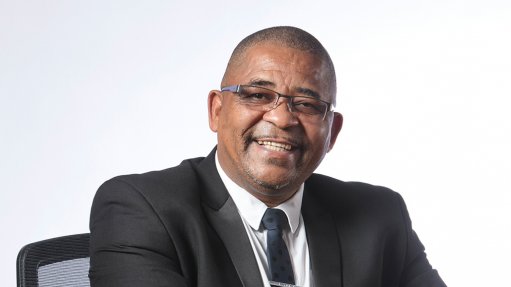
Drakenstein Municipality Executive Mayor Conrad Poole
The Drakenstein municipality, in the Western Cape, has reiterated its commitment to delivering quality municipal services and that its Eskom Loadshedding Resilience Plan will be delivered sustainably.
Executive mayor Conrad Poole says in a release issued on March 16 that Drakenstein will not be a municipality that misleads its community with quick and grand promises of alternative energy solutions that will supposedly replace Eskom and get the area off the grid.
These kinds of statements are often reckless and irresponsible, he laments, creating expectations that no municipality can meet. “It is not that easy, cheap or quick to get off or [even] semi off the grid,” Poole states.
The municipality’s Eskom Loadshedding Resilience Plan rests on three pillars: sustainable service delivery, revenue protection and alternative energy, all while working responsibly with public funds.
The sustainable service delivery pillar speaks to safeguarding municipal infrastructure and mitigating any possible service delivery disruption caused by loadshedding. To this end, the municipality has put in place comprehensive contingency measures.
To address traffic control challenges during loadshedding, Drakenstein municipality has equipped 54% of its 48 primary signalled traffic intersections with uninterrupted power supply (UPS) systems – within underground chambers to prevent vandalism and robbery.
Poole confirms that by the end of June, 47 of these traffic intersections will be upgraded with UPS systems.
The municipality has also been installing backup generators at its water and wastewater facilities over the last five years, to ensure that these services keep running despite loadshedding.
Poole adds that electricity maintenance teams are constantly on standby to repair infrastructure that breaks down owing to high stages of loadshedding.
The municipality and its dedicated cable theft prevention unit are also making strides in its fight against cable theft, with more and more culprits being arrested and prosecuted for this crime in Drakenstein.
The mayor explains the municipality has also installed backup generators at its main offices and facilities, such as the Paarl Civic Centre and other customer care centres, to ensure they remain open for business.
Drakenstein municipality recently received R6-million in relief aid from the Western Cape provincial government, which Drakenstein will match and use towards uninterrupted service delivery, including to fuel emergency diesel generators.
On the second pillar, revenue protection, Poole emphasises the importance of local governments balancing their finances, lest it result in bankruptcy and inefficient or nonexistent service delivery.
To this end, Drakenstein municipalities use income generated from electricity supply to do essential maintenance of electricity network infrastructure in the town.
It is, however, becoming concerning that customers are opting to go off the grid, leading to a visible decrease in the municipality’s revenue generated from electricity supply.
Lastly, to assist in alleviating the sting of Eskom’s loadshedding, Drakenstein municipality is investigating ways of generating or purchasing alternative energy. In this respect, it is engaging with various independent power producers and weighing up the benefits and disadvantages of wheeling.
Poole says the municipality is also investigating new tariffs for small-scale embedded generation (SSEG) systems, including for businesses and households that generate electricity for own use and who wish to push their surplus power into the municipal grid.
Drakenstein municipality has been paying SSEG customers for pumping excess power into the grid since 2015.
The municipality is also one of four Western Cape municipalities participating in the provincial government’s Municipal Energy Resilience Programme, which has them collaborating on various loadshedding mitigation projects.
Poole concludes that the energy generation ball should be placed back in the court of national government. “We cannot act as islands. Municipalities can play a supporting role to ensure that South Africans receive the municipal services they deserve, and this will remain our focus.”